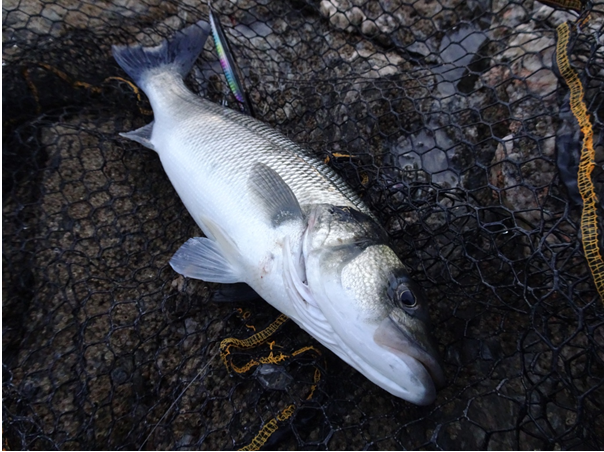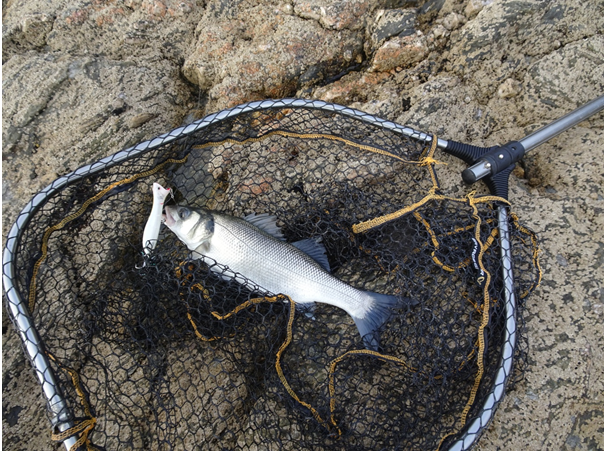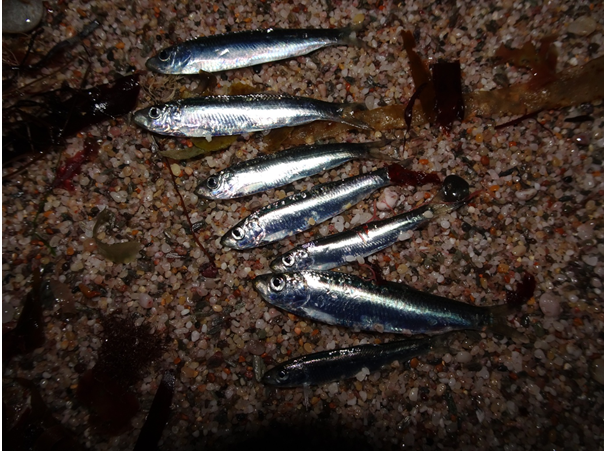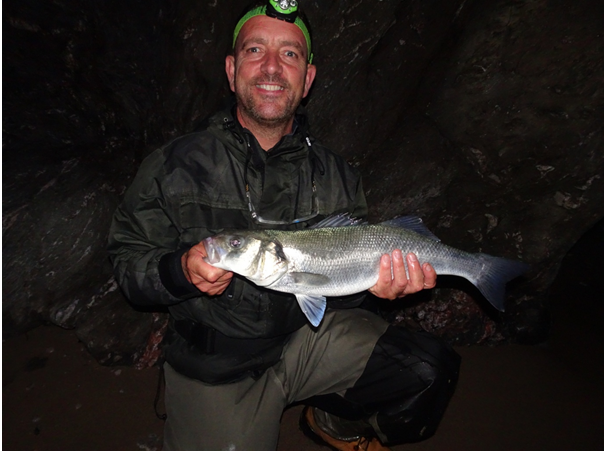Aggravating August
Posted by By Marc Cowling (South Devon Bass Guide) on 2nd Sep 2018

I imagine you’re thinking ‘What a strange title for a blog post!’ And I’ll be honest, it was the first thing that popped into my head when I set about describing the recent events and what I believe are the possible explanations for these occurrences...
Recent events then - it’s been a frustrating month for the reason that at times the bass have been literally crawling up the line, yet at other times, my marks have appeared to be completely devoid of them. Moreover, on numerous occasions, following a glut of catches in the late evening and dusk, they have gone well and truly ‘off the boil’ once darkness has set in. Indeed, my clients and I have landed over a dozen bass in one session, and then followed it up with maybe the odd fish or a blank into the night, or on the next morning or evening tide. Although ‘aggravating’, the sporadic nature to our results isn’t entirely unusual or unexpected for a number of reasons.
Water temperature
Firstly, the current sea temperature around south Devon ranges from 16.7C to a remarkable 20C depending on which observatory you interrogate. What this means is that the bass’ metabolism will be at its peak, which in turn means they will be feeding avidly whilst swimming greater distances than they would in say April or November, when the water is much cooler - so here’s the first clue.

A small bass that took a liking to a lure that has been particularly reliable this August - the Savage Gear Panic Popper.
Bait fish
Next, the seasonal influx of bait fish such as sprat and the mackerel that ‘hoard them up’ undoubtedly influences the bass’ behaviour. For example, alongside being ‘tuned in’ to seeing small items scattering and skittering across the surface layer (in an attempt to escape predators from below) the opportunistic character of a bass means that they will effectively ‘pursue’ these rather unfortunate ‘fodder’ wherever they decide to go, or are hounded. Ultimately, if you’re in the right place at the right time, be it fishing from a headland or more likely a small bay or cove where the ‘small stuff’ is being rounded up, then you could be in for a bass bounty - which is precisely what has occurred when we’ve found them.

Sprat washed up on a shingle cove in south Devon. When these bait fish have been evident, the catches of bass and mackerel have been excellent.
Despondent in Darkness
If the catch rate has been inconsistent by day, then at night it has been utterly incomprehensible in comparison with the usually very reliable levels of success in the calm, clear water conditions we’ve experienced for extended periods this summer. Of course, we have caught bass in the dark, just not to anywhere near the numbers, and especially the sizes, that we were experiencing only a few weeks ago. The only rational justification for being stood there ‘bite-less and fish-less’ when all the ingredients and indicators point towards the opposite is that the bass are eating elsewhere or have simply eaten enough?

A client with the largest (at 4 ¾lb) of fifteen bass that he and his friend caught during a guided evening/night session.
Change
That the bass are seemingly ‘wherever the bait fish and mackerel are’ seems highly plausible. No two seasons are the same, as at this time last year these species were regularly bouncing up the shoreline in a frenzy and flurry of activity around the 15 miles in which I guide and fish - yet, personally, I have only witnessed this on one occasion so far this year. I’m sure that many of my fellow bass lure anglers around the country are experiencing some excellent fishing in conjunction with these occurrences (I hope so anyway).
So what could ‘buck’ this trend? A change in the overall weather conditions to a more unstable pattern encompassing onshore winds or perhaps a sudden drop in air temperature could serve to disperse these shoals of bait fish. Furthermore, something that could be an additional factor is the annual migration of bass around our shores - it could be the case that the larger bass are simply elsewhere, but will return as part of their autumn and winter movement.
Different
As I write this piece, I am preparing to meet a returning client who has caught a number of bass (including two close to 4lb) in the previous sessions he has enjoyed with me. But with yesterday’s blank fresh on my mind from what has been a very reliable region of coastline for me this season, this evening and tonight I am heading for another stretch entirely in my/our quest for another decent sized bass. Will we ever come close to working out these magnificent creatures - I very much doubt it...
Marc Cowling is a professional bass lure fishing guide based in south Devon.
